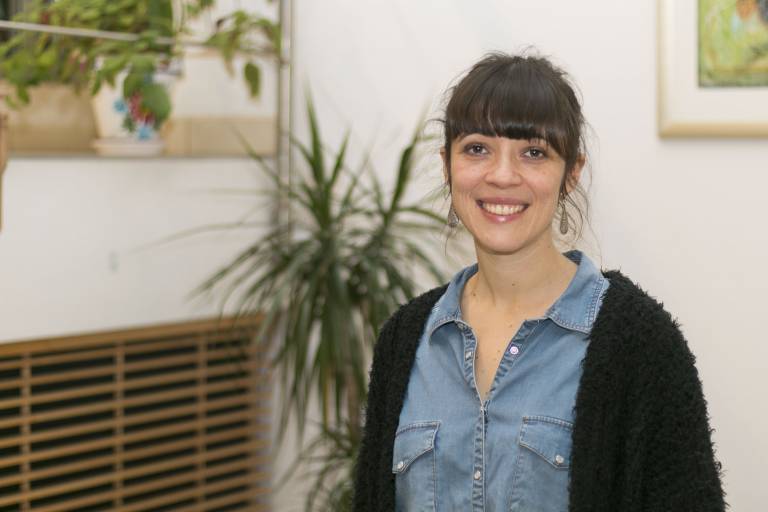UKRI Future Leaders Fellowship - Marta Andres Miguel
24 May 2019
Marta will establish her laboratory to study research into 'Biogenic amines in malaria mosquitoes: from hearing to swarming behaviour'

Dr Marta Andres Miguel is a researcher here at the UCL Ear Institute who has recently been awarded a UKRI Future Leaders Fellowship. She is one of five other UCL academics who are among the first to recieve this new award as part of the government's wider Industrial Strategy Programme.
Marta took some time out of her busy schedule setting up her new laboratory to answer a few questions for us:
You are amongst the first to be awarded a UKRI Future Leader fellowship (congratulations by the way) – are you excited?
I am really excited! The fellowship will allow me to investigate a fascinating research topic and will provide me with long term support, so it is a fantastic opportunity.
What will your first steps be in establishing your lab and developing your research?
The first thing is to acquire the necessary equipment and to put together the research team that will be composed of Judi Bagi as technician and a postdoc who will join very soon. Once this is ready we will start working! At the beginning we will develop some transgenic lines that we will need along the project to study the role of biogenic amines in mosquito hearing.
What particular questions would you like to have answered by the end of the four year fellowship?
By then, we should understand much more about how octopamine and serotonin modulate mosquito audition and about the implications that this modulation has on the acoustic interactions that take place in the swarm as part of the mosquito courtship ritual. With our findings, and informed by the experiments that we will have performed in the field, I would like to understand the potential of disrupting the aminergic signalling as a target of mosquito control strategies. This will inform following field studies in the second fellowship period.
Mosquito hearing research is recognised as a neglected field of study – reflecting on that is it something you hope will change in the future?
I am sure it will change! The developing of genome editing tools in mosquitoes is already transforming mosquito research as these methodologies allow for studying biological processes that were not accessible before. Moreover, the emergence of insecticide resistance among mosquito populations requires a rapid response to find new targets for control measures, and the spread of disease transmitting mosquitoes to higher latitudes is attracting more funding to mosquito research. I think the combination of these factors will boost mosquito hearing research. Luckily the mosquito ear is a fascinating organ and studying it is incredibly fun as a neuroscientist.
Finally - establishing a new research lab must be keeping you busy so how do you unwind?
I keep the weekends free and enjoy London! I am looking forward to a great summer as last year!
Links
- Recent fellowship successes at the Ear Institute
- UCL's Future Leaders Fellows
- UKRI Marta Andres Miguel profile
 Close
Close

